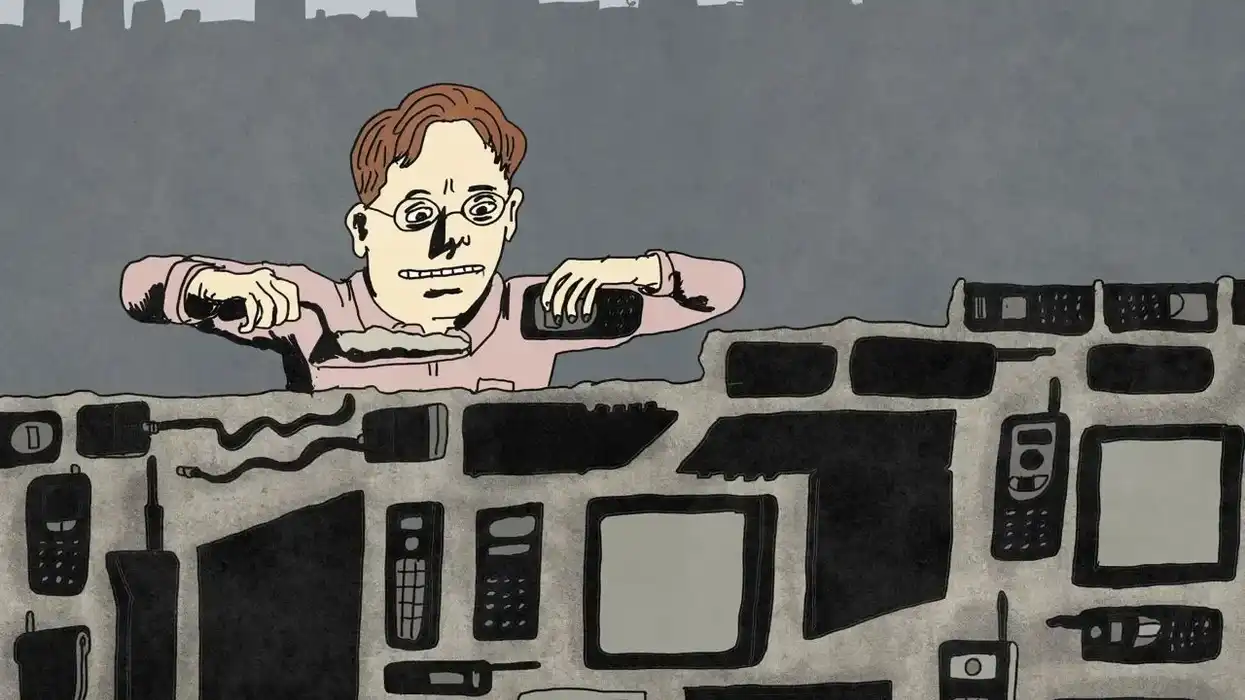
Return image

Early man wielded fire, turning night into a time of brightness and warmth. When he held an axe, the thicket became passable, shapeable. And so the story has progressed, as the tools humans use have changed, so has the world itself been shaped by what is possible through their use. The globe shrank with the expansion of railways, and in the spread of their web-like tracks across the landscape, even mountains became moveable by explosives and excavators. Now it seems the entire world fits in the palm of your hand, navigable with your thumbs and an internet connection.
Our age is one of empowered discontent. We see the obstacles nature imposes, and instead of accepting them, we defy them. We change the world on a whim, and our lives are often better for it.
But we’re also shaped by the tools we use. Technology reshapes the relationship between the subject using it and the world in which that subject exists. Technology is culture. And, centrally, technology is more than merely a tool or a means to an end; according to Martin Heidegger, it’s a mode of being in the world. It morphs the actual world merely by allowing us to engage with the world differently; in a way, it’s akin to growing new appendages or organs, like wings or gills.
If it makes your skin crawl to think of yourself as inextricably conjoined with your toothbrush, refrigerator, or smartphone, then you get it. But to resist here is to place undue distance between yourself and some of the things I guarantee are close to your heart that have shaped your values and enriched you without much conflict. For example, written language and its storage in the form of books and drives amount to extending human memory beyond natural limits. At this point, we can’t and shouldn’t want to hide from this reality. All the beautiful poems, religious musings, scientific screeds, and practical manuals in the world are, in a real sense, technological extensions of us. Music, movies, community buildings, the farmer’s tractor, your grandmother’s insulin pump, and your great-uncle’s favorite muscle car are all under this aegis. And the world without many of these things would be colder, emptier, and inhuman.
If you could fly and breathe water, a cliff or body of water would have an entirely new meaning. Instead of boundaries, you’d see just another terrain to traverse. And in this line of reasoning, in a roundabout way, natural resources have been translated into meaning warmth (a log to burn), health (e.g., steel into scalpels, bark into medicine), shelter (turning concrete, steel, timber, and the like into homes), and electricity (e.g., burning fossil fuels or creating photovoltaic batteries, etc.), to name a few.
But, as is obvious to those paying any attention, the rosy regard of technology-as-all-benevolent is misguided. It’s easy to allow technology to cause us to see everything as “means, ends, causes, and effects.” This way of being is dangerous and dehumanizing, and the overreach of technologists’ creations merely because something is possible leads to awe-inspiring blunders, like Amazon’s Alexa committing an AI necromancy on dead relatives.
To borrow once more from Heidegger, the way through this entanglement with tools is “releasement” (Gelassenheit), an attitude of saying both “yes” and “no” to technology. Releasement involves accepting that technology is unavoidable while refusing to allow it to pull us into its depths. To quote Karl Jaspers, in the face of this great technological artifice we all were born into, the default is that one “accepts life as mere existence and allows everything to be decided for him.”
Technology should serve us, not the other way around. And that means we need to push for more tech we can trust. This is more difficult than wholesale rejection of the whole post-Industrial Revolution project. But it’s the only realistic way forward.